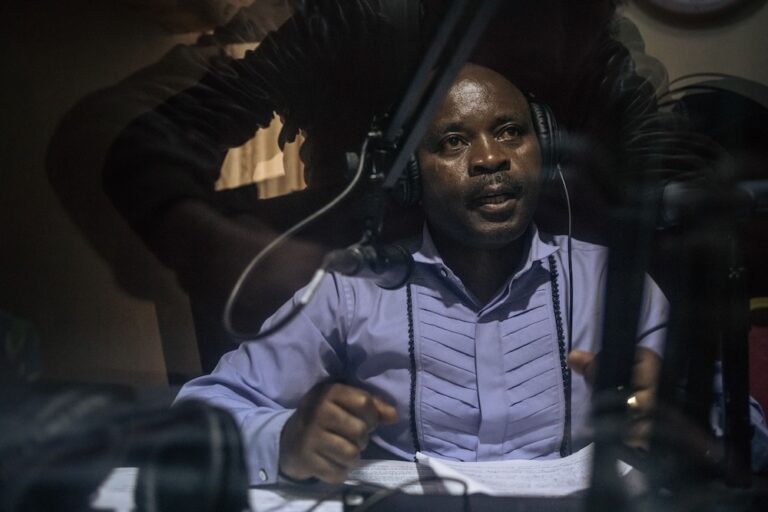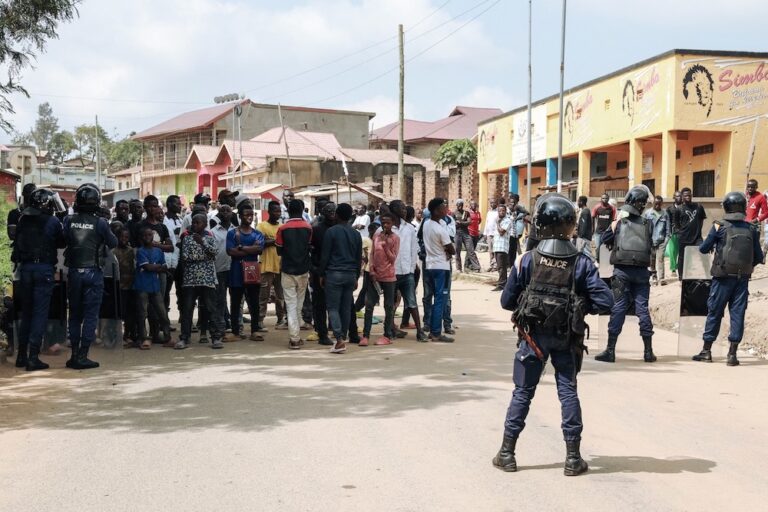(JED/IFEX) – JED expresses deep regret and outrage at the murder of 34-year-old Radio Okapi journalist Didace Namujimbo on 21 November 2008. According to early reports received by the organisation, Namujimbo, who was on his way home from the station, was killed by a bullet to the neck fired at point-blank range at about 9:30 […]
(JED/IFEX) – JED expresses deep regret and outrage at the murder of 34-year-old Radio Okapi journalist Didace Namujimbo on 21 November 2008. According to early reports received by the organisation, Namujimbo, who was on his way home from the station, was killed by a bullet to the neck fired at point-blank range at about 9:30 p.m. (local time), shortly after he was dropped off by a MONUC (UN Mission in the Congo) vehicle on the main road in his neighbourhood. His body was found the next morning by passersby about 50m from his home.
Radio Okapi is a joint project of the MONUC and the Swiss Foundation Hirondelle.
A member of the journalist’s family told JED that his two cell phones had been taken but that money and other personal items were still on him at the time, including a Walkie Talkie he used for his work.
Namujimbo is the second Radio Okapi journalist to be gunned down in Bukavu in just over a year; Serge Maheshe, also a reporter with the radio station, was shot dead in June 2007. He is the sixth media worker to be killed in the country in the past three years, under much the same circumstances.
JED notes that the three trials that took place for these six murders left a number of unanswered questions around the motives and identities of both the perpetrators and contractors of the murders, largely because preliminary investigations were deliberately botched, according to the organisation. The cycle of violence that continues to target journalists is fuelled by a culture of impunity which guarantees indemnity to the real killers and contractors via sham trials, says the organisation.
JED calls for the creation of a joint committee of investigation into Namujimbo’s murder, comprising both the Congolese judicial authorities and the MONUC, so that all leads may be fully explored and the truth uncovered.
For further information on the Maheshe case, see: http://ifex.org/en/content/view/full/84132


